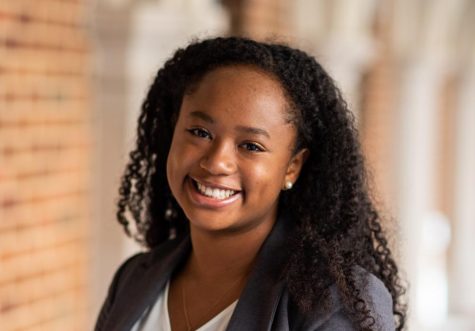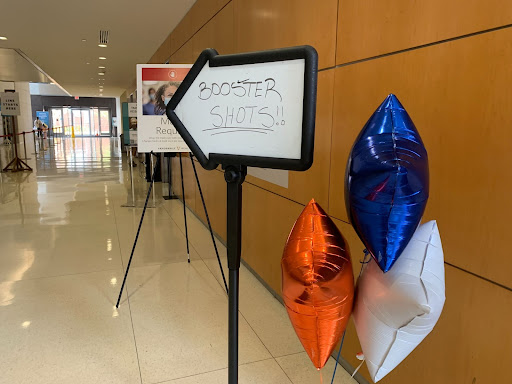Student expectations for Spring 2022 were disrupted by the start of the semester being delayed from Jan. 10 to Jan. 18. A quiet “Commodores Care” period will also be enforced until Jan. 24 following two emails sent to the Vanderbilt community on Dec. 30.
During the Commodores Care period, students may only attend class, pick up meals, “perform essential work or research for the university” and access medical care if needed. Libraries and other common spaces will be closed, and dining halls will operate solely in a to-go manner. Students are allowed to interact only with their roommate(s) in person.
General student reactions
Senior Micayla Cochran said she felt frustrated that COVID-19 continues to affect her college experience, especially during her last semester at Vanderbilt.
“More than half of my college experience has been changed by COVID,” Cochran said.
First-year Dylan Garwick similarly told The Hustler that he wants things to get back to “normal.”
“I wish we could be able to eat at dining halls etc. to try to have a normal freshman year, but I understand the caution that the university has because of the rise in COVID cases,” Garwick said in a message to The Hustler.
Emma Marlowe, also a first-year, was disappointed by the lack of details provided to students in the two Dec. 30 email notices about the policy changes.
“For how late they sent it out, it could have been a little more comprehensive,” Marlowe said. “It’s been hard because I feel like they came on so fast and so hard and so strong with what you can’t do, but they didn’t actually tell you what to do.”
Sophomore Jordan Esrig expressed disapproval with the severity of the guidelines, stating that they are unnecessary at this point in the pandemic.
“Lockdowns are a draconian overstep to the current symptoms of omicron,” Esrig wrote in a message to The Hustler.
Esrig was a participant in a Jan. 4 Fox News panel with other college students speaking about their respective schools’ COVID-19 protocols. During the segment, titled “Colleges go remote after accepting COVID funding,” Esrig criticized Vanderbilt’s updated policies, referring to COVID-19 as “a glorified cold.”
“At Vanderbilt, we’ve effectively been locked down in the beginning of school. I can’t leave my dorm room to go to the library, to eat at the dining hall,” Esrig stated during the segment. “If I go to my synagogue or my friends go to mass, we could be suspended, we could be expelled. We have to go through a disciplinary process.”
In response to Esrig’s statements in the Fox News feature, the university suggested students refer to the health and safety protocols website and FAQs, as well as the emails sent to the Vanderbilt community, for the latest information on the guidelines.
Per junior Sofia Abadali, who is currently residing on-campus under the Commodores Care period guidelines, residential advisors (RAs) have been enforcing the new guidelines in their respective residence halls.
“It’s the RA’s job to see if they hear voices,” Abadali said. “I’m not sure how well they can monitor, though.”
The health and safety protocols website encourages members of the Vanderbilt community to report others for “multiple counts” of violations. However, it does not detail how to submit a report or RAs’ role in upholding policy compliance.
“We are enhancing our compliance efforts surrounding health and safety protocols,” the Dec. 30 email from the university reads. “Any violations will be referred to the Office of Student Accountability, Community Standards and Academic Integrity, and swift action will be taken for any verified incidents of noncompliance.”
Anna Chung, a first-year, shared worries about when the student body returns for the spring semester. She expressed doubt that the university policies will prevent virus transmission.
“When we are picking up our food, we need to leave our room, which is not isolation,” Chung said. “I don’t feel like the isolation stuff works out.”
Chung also said she is concerned about students potentially bringing new variants of COVID-19 back to campus, as they will be coming from different countries and states. She said the possibility of this situation occurring is especially concerning to her, as she would have to travel back to Taiwan if the campus were to shut down like it did in Spring 2020.
Some students are concerned about returning to school more broadly. On Jan. 9, sophomore Meaghan Kilner started a Change.org petition asking Vanderbilt to offer a remote or hybrid option for students for the spring semester. As of print, the petition currently has 228 signatures.
“Vanderbilt’s current policy of requiring students to study in person is ableist in that it forces vulnerable students to decide between their health and their education,” the petition reads.
Kilner cited the growing number of COVID-19 cases as a source of apprehension for going back to school. She specifically expressed concern for immunocompromised students who may feel unsafe returning to school, while acknowledging that returning to campus is safe for most students.
“They can’t know everybody’s situation, so giving people the option allows everyone to make the decision that’s best for their own health and safety,” Kilner said.
Implications for student workers
Abadali said she did not receive notice until Jan. 6 that she wouldn’t be able to return to her in-person Federal Work Study (FWS) position until the end of the quiet period. In a Jan. 7 email to Abadali and her coworkers, Will Stringfellow, her boss at Central Library’s Federal Depository, specified that there are “a couple” of virtual projects available, for which they would have to be specifically trained. Abadali said she has not received communication as to how these projects will be assigned.
“Training takes more time than the actual work, so you have to dedicate more hours than you usually would,” Abadali said.
Abadali spoke about a lack of communication between her, her superiors and the administration. When the new guidelines were released, Abadali said she was left with many questions about what employment would look like at the beginning of the spring semester.
“I definitely think our supervisors don’t know anything either,” Abadali said. “As soon as they hear something, they’ll email us or whatever Vanderbilt is able to tell [us].”
According to the Vanderbilt Federal Work Study website, approximately 800 of the total 4,000 students employed by the university are part of the FWS program. As the FWS program enforces a maximum number of work hours per week for student workers, students may not be able to make up lost wages in subsequent weeks. Students are not allowed to receive paid time off from their work study jobs, per the website. In an email sent to The Hustler during the summer of 2020, the Office of Student Financial Aid and Scholarships (OSFAS) stated that there would be no changes in how FWS operated despite challenges from COVID-19.
Sophomore Ananya Sagar, who conducts research in a Vanderbilt University Medical Center (VUMC) lab, said her lab did not receive any contact about the Commodores Care period at all. She stated that she has chosen to not attend work during the quiet period, but that the lab will continue in-person operations with graduate students and postdocs throughout the period. Sagar said she is the only undergraduate student working in her lab.
“My lab is pretty accommodating, so I have just been given the week off; however because it is a wet lab, most of my research has to be conducted in person, and I don’t have much data to analyze,” Sagar said in a message to The Hustler. “It does put me behind where I expected to be in work this semester, given both a week off and the Commodores Care period.”
The university’s website does not specify whether the Commodores Care period applies to all students or just undergraduates; undergraduates were informed of the period in an email addressed solely to them. VUMC’s COVID-19 Updates for Research webpage has not been updated since Aug. 23. As of Jan. 4, all VUMC employees are required to obtain a COVID-19 booster shot by Jan. 31 or within 30 days of becoming eligible. However, the Jan. 4 announcement reads that proof of a booster shot is not currently required as a condition of continued employment.
Implications for Vanderbilt Athletics
The Commodores Care period also prohibits students from attending university sporting events during that time, including the next 10 men’s and women’s basketball games. However, The Hustler confirmed that Memorial Gymnasium will operate at 100% capacity for these games. Anyone with proof of vaccination or a negative COVID-19 test can buy a ticket and enter the gymnasium, but students would be in violation of the Commodores Care rules if they chose to do so.
The Hustler obtained emails from Vanderbilt Athletics that offered student section tickets to season ticket holders for $20 each and two complimentary student section tickets to Vanderbilt Black and Gold Club members—advertising the offer as “special” and “exclusive.”
Despite the emails specifying that the tickets are unable to be resold, The Hustler found that tickets for the Jan. 11 men’s basketball game against the University of Kentucky were selling on StubHub for over $200 per seat without fees as of Jan. 7. As of print, remaining student section tickets for the game are selling for up to $128 without fees on Ticketmaster. Similarly, student section tickets for the Jan. 18 men’s basketball game versus the University of Tennessee are being priced at up to $196 without fees on StubHub.
“You can purchase these seats to move to the student section or invite the biggest Vandy fans you know!” the email reads.
Students have criticized this decision, arguing that students should be prioritized over other Vanderbilt Athletics fans. Senior William Shelton said the protocol is “hypocritical” as the Commodores Care period is intended to stop the spread of COVID-19, but the university is hosting sporting events at 100% capacity.
“If the school believes they’re stopping students from gathering by not allowing them at games, that’s the school’s decision, but then eat the cost of the student tickets. Use the extra space to make the other full-capacity, paying fans spread out and feel safer, don’t go digging for more money,” Shelton said. “At the heart of it though, just like last season, the school’s biggest fan base is their students. They should be the first fans considered to cheer on their team—above anyone else.”
Looking ahead
University leaders will host a virtual town hall for undergraduate students on Jan. 11 at 5 p.m. CST that will provide information about the updates in addition to a Q&A session. On Jan. 12 at 5 p.m. CST, there will be another virtual town hall for graduate students. The town hall for faculty and staff was on Jan. 7. All town halls will be recorded and posted on Vanderbilt’s Health and Safety Protocols webpage; however, the faculty and staff town hall has yet to be uploaded as of print. Students can also call the Return to Campus Helpline for additional information.
Despite the changes to the Spring 2022 semester, students are still looking forward to returning to campus. Cochran said she intends to not let the omicron variant ruin her semester.
“I’m hoping that at least the second half of the semester will be a pretty normal semester,” Cochran said. “We’ll learn to adapt and shift, and I’ll still find ways to have a good senior year.”
Justin Hershey and Rachael Perrotta contributed reporting to this piece.










